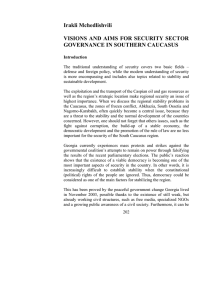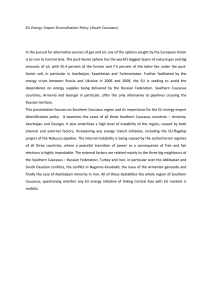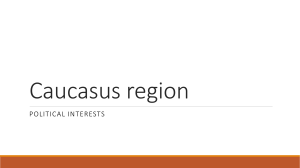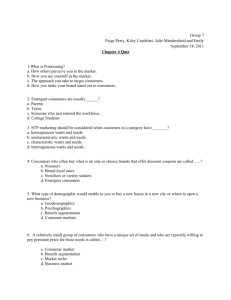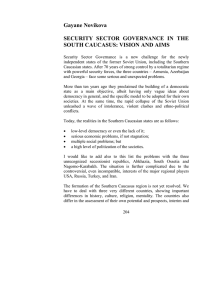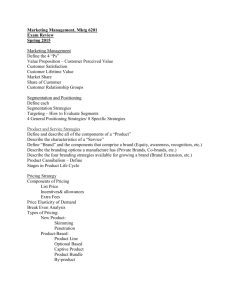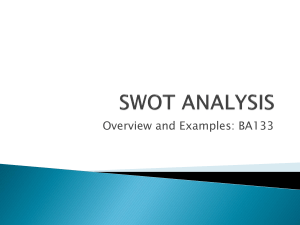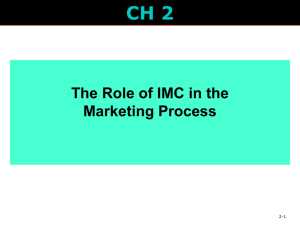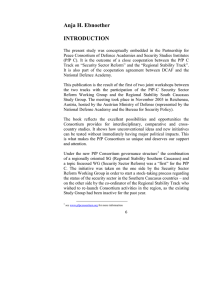Syllabus - ISCTE Business School
advertisement
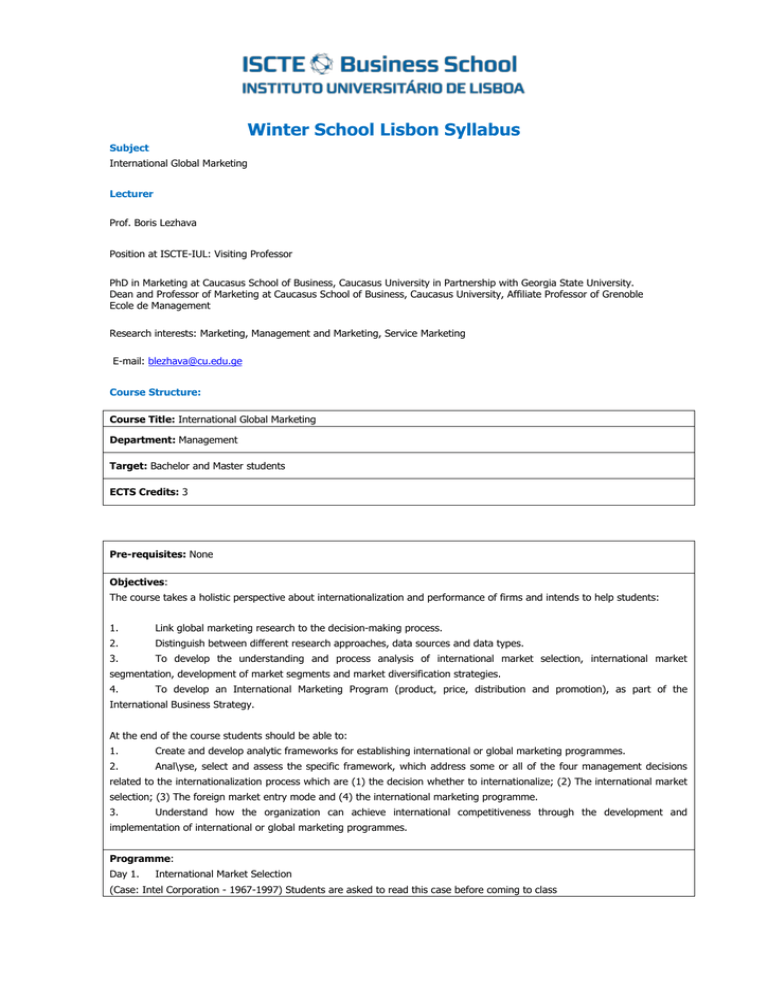
Winter School Lisbon Syllabus Subject International Global Marketing Lecturer Prof. Boris Lezhava Position at ISCTE-IUL: Visiting Professor PhD in Marketing at Caucasus School of Business, Caucasus University in Partnership with Georgia State University. Dean and Professor of Marketing at Caucasus School of Business, Caucasus University, Affiliate Professor of Grenoble Ecole de Management Research interests: Marketing, Management and Marketing, Service Marketing E-mail: blezhava@cu.edu.ge Course Structure: Course Title: International Global Marketing Department: Management Target: Bachelor and Master students ECTS Credits: 3 Pre-requisites: None Objectives: The course takes a holistic perspective about internationalization and performance of firms and intends to help students: 1. Link global marketing research to the decision-making process. 2. Distinguish between different research approaches, data sources and data types. 3. To develop the understanding and process analysis of international market selection, international market segmentation, development of market segments and market diversification strategies. 4. To develop an International Marketing Program (product, price, distribution and promotion), as part of the International Business Strategy. At the end of the course students should be able to: 1. Create and develop analytic frameworks for establishing international or global marketing programmes. 2. Anal\yse, select and assess the specific framework, which address some or all of the four management decisions related to the internationalization process which are (1) the decision whether to internationalize; (2) The international market selection; (3) The foreign market entry mode and (4) the international marketing programme. 3. Understand how the organization can achieve international competitiveness through the development and implementation of international or global marketing programmes. Programme: Day 1. International Market Selection (Case: Intel Corporation - 1967-1997) Students are asked to read this case before coming to class Day 2. International Product and Branding Decisions (Case: Winning in a mature market: US wine industry) Day 3. Customer Lifetime Value (Exercise: Brand Ranking based on Brand Equity Index Calculation – 30 minutes) (Case: Real Madrid Club de Futbol or BMW Films) Day 4. International Pricing Decisions Day 5. International Promotion Strategy and Distribution Decisions (Exercise: Price Strategies based on Competitors Move – 45 minutes) (Case: Apple Stores) Assessment: Test 50% In-class Exercise 10% (We will have two in-class ex. 5% for each) Case Study analysis and presentation 40% (We will discuss four case. 10% for each) TOTAL 100% Case study analysis and presentation (40%) The case studies are used for the following objectives • To develop participants’ analytical skills by giving them the opportunity to identify and analyse the impact of a number of critical issues relating to a real global marketing situation. • To outline the practical issues which can arise in a number of important international marketing areas, such as culture, market segmentation, distribution, positioning, strategy development, brand and product development. • To enhance participants’ strategic thinking with the requirement to evaluate a company’s international marketing strategy, along with the challenge of developing a marketing strategy of their own. • To develop course participants’ conceptual and reasoning skills by requiring that they develop an appropriate response to the situation faced by the company. Teaching Method: Lectures and Case Studies analysis References: Required Text book: Warren J. Keegan, Marc C. Green (2011). Global Marketing, Sixth Edition, Pearson. Supplementary materials: Books (we will talk about some parts from the below listed books): 1. Porter, E. Michael “On Competition”, Harvard Business Review Book, 2008 2. Friedman, L. Thomas “The World is Flat, Penguin Books, 2006. 3. Kim, W. Chan and Mauborgne, Renee “Blue Ocean Strategy” Harvard Business School Press, 2005. 4. Thurow, C. Lester “Building Wealth – The New Rules for Individuals, Companies and Nations in a Knowledge-Based Economy”, Harper Business, 1999. Journal articles (we will use information from the below listed articles): 5. Noble, M. Peter and Gruca, S. Thomas (1999). “Industrial Pricing: Theory and Practice”, Marketing Science, vol. 18 No. 3, pp 435-454.
